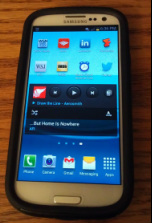When we get our start in sales we are coached in all the ways of pitching our product or service, handling objections, and even preemptively avoiding those objectives. While these are important skills to have, we are also all taught many of the same techniques in closing as well. The finesse of closing however, is bit more troubling to master than everything else. Unfortunately, we don’t get points for a great execution of our sales process leading up to a sale lost to our competitor.
The Assumptive Close and Asking for The Business are the most basic. Many of us find these to be most successful in conjunction with each other. If you don’t ask for the business the client can’t say yes and you haven’t given them the opportunity to cut the check. By assuming the sale you are telling them that this is the point in the conversation where they sign on the dotted line or make the payment. Even the guy standing on the curb washing windshields with yesterday’s newspaper knows this.
If you’ve done your job as a sales person, you’ve already painted the picture of what you’re client really needs, why you are the best person/company to fulfill that need, and why they need to act on that information today. From there, it is only natural that they do business with you. Right?
Using assumption to ask for the business:
Why Do So Many Deals Fall Through at The Close?
Answer – The sales person should have SHUT-UP.
When it comes to closing a sale, if you’ve asked for the business, by means of assumption or otherwise, it is time to be silent. At this stage in the sales process you should be allowing the client to make sense of all the information you’ve provided. Give the client the time they need to reach the conclusion you’ve been working so hard to steer them toward.
Too often sales people continue to talk and give more justification for things they have already covered. Justifications should have already been made apparent at this point. By continuing to talk you are overburdening the clients’ thought process. This makes it much more likely that they will start to fear making a reckless decision. In a state of panic the client is likely to end the meeting so that they can “Think it over,” or even worse they may tell you “I’m not sure if this is the direction we want to go,” and kill the sale right there.
Why is Silence Key?
1. Strategic silence gives the client the time to talk themself into why they should do business with you.
2. Without giving the client time to consider your argument they can be sent into a state of panic that will kill the sale before your solution is even considered.
3. It exudes confidence. By continuing to speak before you are spoken to you can come off as if you don’t have confidence in yourself or your offerings. If that is the case, why should the client?
What about Objections?
There are almost always objections and you should have had plenty of practice answering them in your training, in practicing on your own, or on the job.
During your close, refrain from bring up objections that the client hasn’t brought up themselves. While that seems like a no-brainer, when some of us get into more long winded answers to a client’s objections we stumble into this mistake.
Your rebuttal to objections should be as succinct as possible. The goal is to refute the clients concerns and continue to give them the silence they need to mentally prepare themselves to give you their business.
How Long Should I be Silent?
Until you’ve been asked a question you are expected to answer.
Sometimes clients will ask questions as they think to themselves out loud. Give yourself a moment before answering, to make sure that the client is really looking to get an answer from you. They may answer the question themselves or ask three or four more questions before they actually get to one the really want you to answer.
You’ll need to feel it out a bit, which comes with experience. Keep in mind though, that nearly every time you break the silence you should be asking for the business.
Client: “But your competitor is less expensive”
Sales Person: “That’s true and I can compete with that, but you’d miss out on Value XYZ and you mentioned when we started that XYZ was really important to you, is that still true?”
Client: “Oh, of course!”
Sales Person: “Ok, well with that, did you decide on five or six dozen widgets?”
Question Time! [Be sure to comment and share your thoughts and insight!]
What are your favorite closing techniques?
What was the coolest sale you’ve ever seensaved or saved yourself from The Land of No-Way-Is-This-Going-To-Sell?
Or you could share a sales horror story!
The Assumptive Close and Asking for The Business are the most basic. Many of us find these to be most successful in conjunction with each other. If you don’t ask for the business the client can’t say yes and you haven’t given them the opportunity to cut the check. By assuming the sale you are telling them that this is the point in the conversation where they sign on the dotted line or make the payment. Even the guy standing on the curb washing windshields with yesterday’s newspaper knows this.
If you’ve done your job as a sales person, you’ve already painted the picture of what you’re client really needs, why you are the best person/company to fulfill that need, and why they need to act on that information today. From there, it is only natural that they do business with you. Right?
Using assumption to ask for the business:
- “All together your solution comes to $XXX,XXX.XX, which payment option did you want to use?”
- “When did you want us to start?”
Why Do So Many Deals Fall Through at The Close?
Answer – The sales person should have SHUT-UP.
When it comes to closing a sale, if you’ve asked for the business, by means of assumption or otherwise, it is time to be silent. At this stage in the sales process you should be allowing the client to make sense of all the information you’ve provided. Give the client the time they need to reach the conclusion you’ve been working so hard to steer them toward.
Too often sales people continue to talk and give more justification for things they have already covered. Justifications should have already been made apparent at this point. By continuing to talk you are overburdening the clients’ thought process. This makes it much more likely that they will start to fear making a reckless decision. In a state of panic the client is likely to end the meeting so that they can “Think it over,” or even worse they may tell you “I’m not sure if this is the direction we want to go,” and kill the sale right there.
Why is Silence Key?
1. Strategic silence gives the client the time to talk themself into why they should do business with you.
2. Without giving the client time to consider your argument they can be sent into a state of panic that will kill the sale before your solution is even considered.
3. It exudes confidence. By continuing to speak before you are spoken to you can come off as if you don’t have confidence in yourself or your offerings. If that is the case, why should the client?
What about Objections?
There are almost always objections and you should have had plenty of practice answering them in your training, in practicing on your own, or on the job.
During your close, refrain from bring up objections that the client hasn’t brought up themselves. While that seems like a no-brainer, when some of us get into more long winded answers to a client’s objections we stumble into this mistake.
Your rebuttal to objections should be as succinct as possible. The goal is to refute the clients concerns and continue to give them the silence they need to mentally prepare themselves to give you their business.
How Long Should I be Silent?
Until you’ve been asked a question you are expected to answer.
Sometimes clients will ask questions as they think to themselves out loud. Give yourself a moment before answering, to make sure that the client is really looking to get an answer from you. They may answer the question themselves or ask three or four more questions before they actually get to one the really want you to answer.
You’ll need to feel it out a bit, which comes with experience. Keep in mind though, that nearly every time you break the silence you should be asking for the business.
Client: “But your competitor is less expensive”
Sales Person: “That’s true and I can compete with that, but you’d miss out on Value XYZ and you mentioned when we started that XYZ was really important to you, is that still true?”
Client: “Oh, of course!”
Sales Person: “Ok, well with that, did you decide on five or six dozen widgets?”
Question Time! [Be sure to comment and share your thoughts and insight!]
What are your favorite closing techniques?
What was the coolest sale you’ve ever seensaved or saved yourself from The Land of No-Way-Is-This-Going-To-Sell?
Or you could share a sales horror story!






 RSS Feed
RSS Feed
